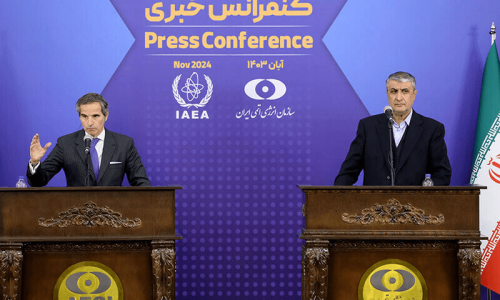
ISLAMABAD: Top army commanders held an extraordinary meeting on Sunday in the wake of US allegations about ISI’s links with the Haqqani network and agreed on the need to de-escalate the situation.
Holding a corps commanders’ meeting, possibly for the first time on a Sunday, reflected the seriousness of the crisis created by a series of allegations levelled by US officials against Pakistan’s security forces and its top intelligence agency. However, the military’s public affairs wing, ISPR, didn’t say a word about the outcome of the meeting chaired by Chief of Army Staff Gen Ashfaq Parvez Kayani. Earlier in the day the ISPR had announced that a special corps commanders’ conference had been convened to “discuss the prevailing security situation”.
A source privy to discussions at the conference, however, revealed that de-escalation efforts were afoot. “Escalation is harmful. In the cost-benefit analysis there appears to be no benefit of a confrontation.”
His claim was corroborated by another senior official.
But there was nothing to suggest that the army had agreed to act against the Haqqani network under US pressure.
The army is rather asking for developing strategic coherence and clarity about US goals in Afghanistan and thinks that operational differences would be addressed.
The commanders met at a time US Centcom chief Gen James Mattis was to leave Islamabad after meeting Gen Kayani and Joint Chiefs of Staff Committee Chairman Gen Khalid Shameem Wynne.
Fresh strains in Pakistan-US ties in the aftermath of allegations by Admiral Mullen and other US functionaries remained the focus of the discussion.
Army and the political leadership has categorically rejected the allegations that the Haqqani network was a ‘veritable arm’ of ISI and that Pakistan was responsible for the attack near the US embassy in Kabul.
It is understood that Gen Kayani, who later in the evening departed for the UK to address International Institute for Strategic Studies and the Royal College of Defence Studies, conveyed to his commanders the message Gen Mattis had brought with him.
Little is known about the precise nature of the message, but the US embassy said: The Centcom commander stressed on “the need for persistent engagement among the militaries”.
An ISPR statement on Gen Wynne’s meeting with Gen Mattis quoted the former as having spoken about “achieving enduring peace in the region… through mutual trust and cooperation”.
Reuters adds: Gen Wynne expressed concern over the “negative statements emanating from (the) US”.
“He stressed upon addressing the irritants in relationship which are a result of an extremely complex situation,” the statement said.
About the corps commanders’ meeting, military spokesman Maj-Gen Athar Abbas said: “The prevailing security situation was discussed.”
Gen Abbas acknowledged that army’s Directorate of Inter-Services Intelligence maintained contacts with the Haqqani network, but said that didn’t mean it supported it. “No intelligence agency can afford to shut the last door of contact,” he told Reuters.
“Maintaining contact doesn’t mean that you are endorsing or supporting that terrorist organisation.”











































Dear visitor, the comments section is undergoing an overhaul and will return soon.